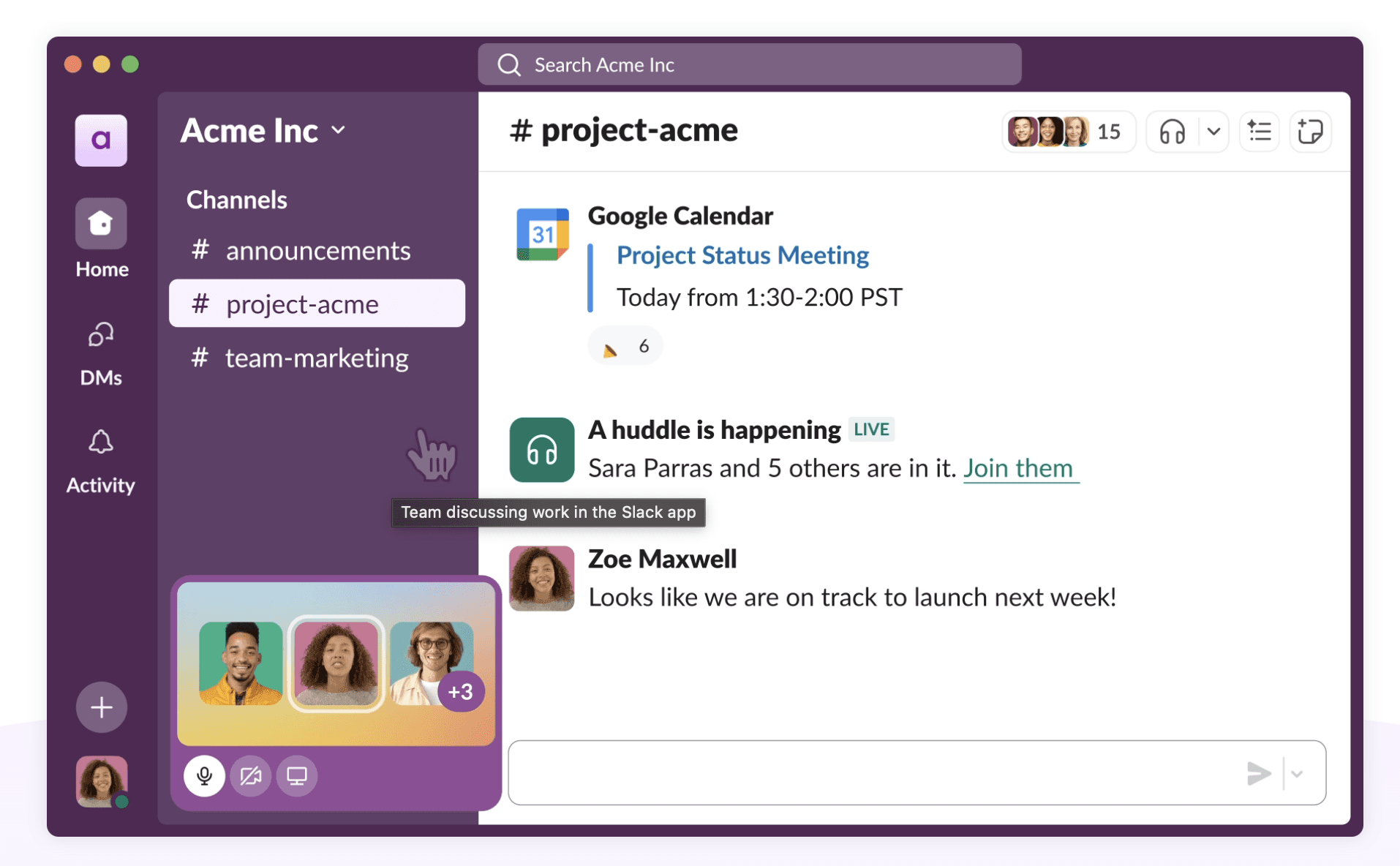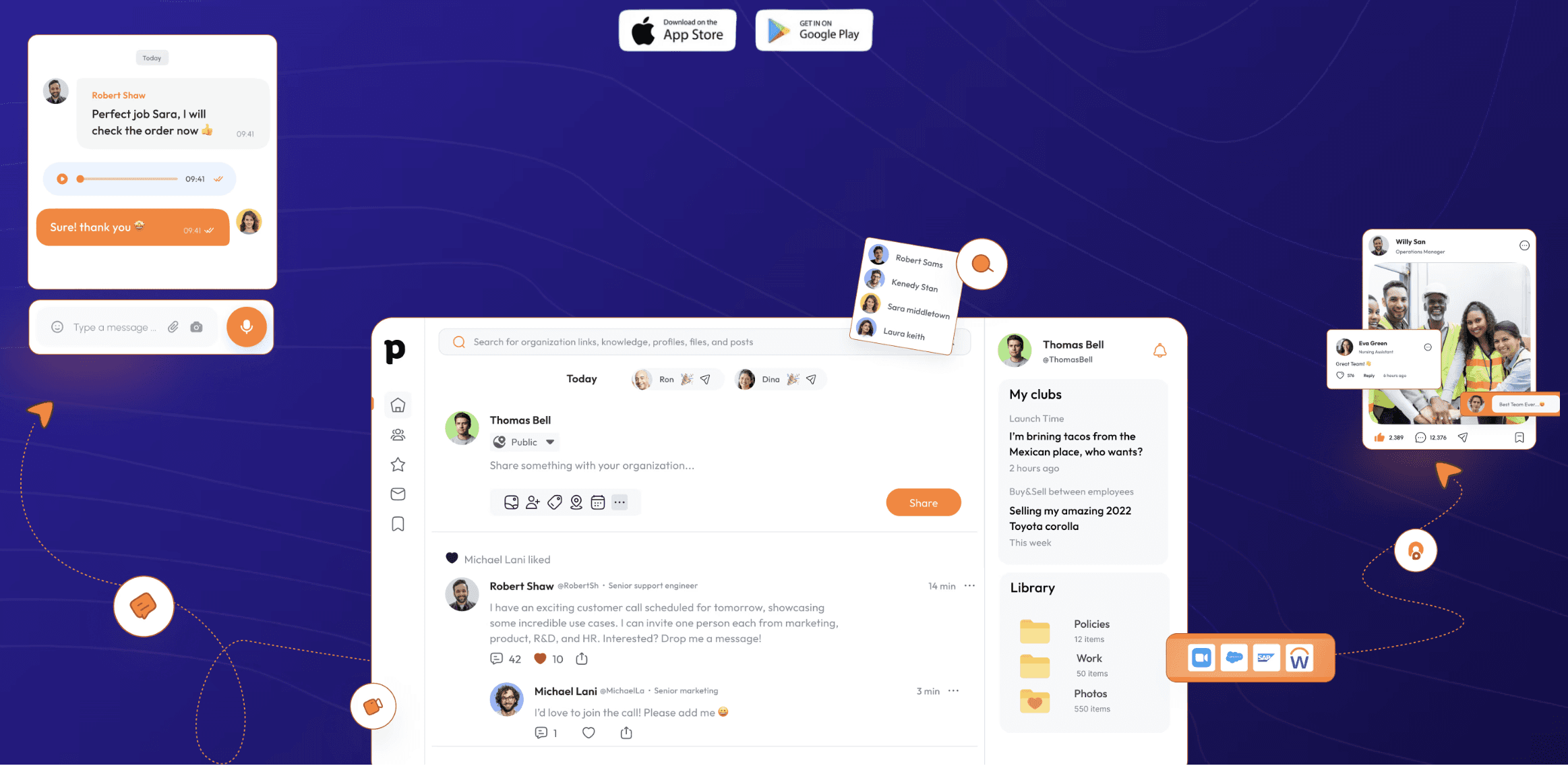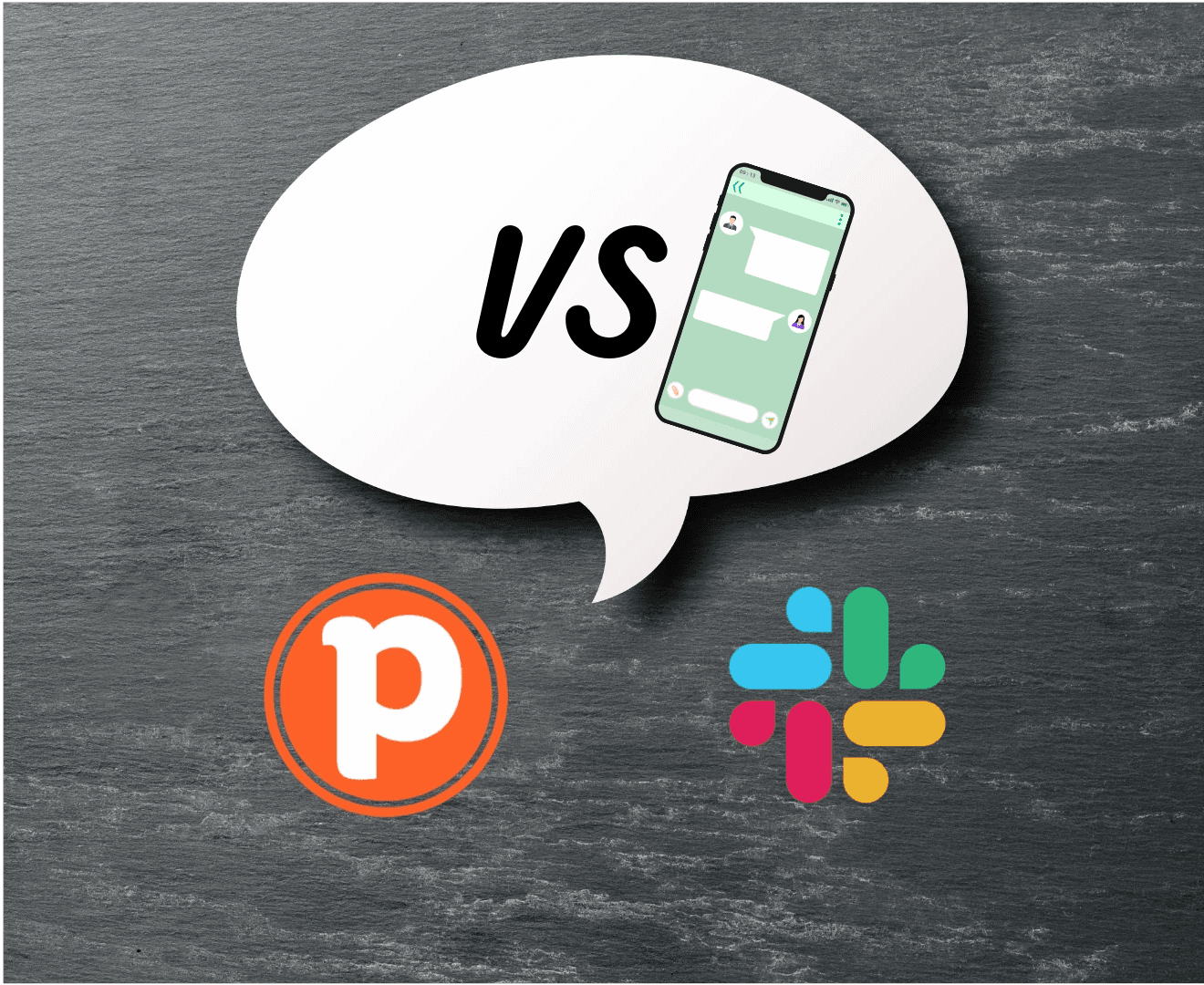Slack vs Pebb: The Ultimate Communication Apps Comparison
4 sept. 2024
James Dean
In the world of team communication and collaboration, the tools you choose can significantly impact your organization's productivity, culture, and overall success. Two major players in this space are Slack and Pebb. Slack has long been a staple, especially for tech and development teams, known for its real-time messaging and robust integrations. On the other hand, Pebb offers a broader, more holistic solution that caters to a diverse range of industries, from frontline workers in retail to law firms and government workplaces.
This comparison will delve into why Pebb is an excellent slack alternative that might just be the better choice for your organization.
Understanding Slack and Pebb: Communication All Around
Slack is a well-established platform, celebrated for its organized, channel-based communication and seamless integrations with countless other tools. It’s particularly popular among tech companies and development teams, where constant, real-time communication is crucial. Slack allows teams to streamline conversations, manage projects, and share files efficiently.
Pebb, however, takes a more expansive approach. While it offers powerful messaging capabilities, Pebb’s focus extends beyond just chat. It aims to create a vibrant, connected community within your organization through features like dynamic employee profiles, real-time news feeds, and a comprehensive Knowledge Library. These features ensure that every team member, whether in the office or on the frontlines, stays engaged and informed.
Core Features Comparison

When comparing Slack and Pebb, it’s clear that each platform has its own strengths, but Pebb provides a more complete solution for organizational connectivity and engagement.
Messaging and Collaboration
Slack:
Excels in real-time messaging, allowing teams to communicate instantly through organized channels and direct messages. It’s a favorite among tech and development teams, where constant updates and quick feedback are vital.
Integrates with thousands of third-party apps, making it highly adaptable, especially in tech-heavy environments. However, this can lead to an overwhelming experience for users in non-tech industries.
Pebb:
Also offers real-time chat messaging, but it’s just the beginning. Pebb’s platform includes dynamic news feeds that keep everyone updated with important company-wide announcements, not just isolated team conversations.
Goes beyond chat by promoting deeper collaboration through clubs and groups, where teams can focus on specific projects or interests. The Knowledge Library is a standout feature, centralizing important documents and resources, ensuring that every employee has easy access to the information they need, regardless of their role or location.
User Interface and Experience
Slack:
Boasts a clean, straightforward interface with a channel-based structure that helps keep conversations organized. However, for new users, especially those outside of tech industries, Slack can sometimes feel overwhelming due to the sheer number of integrations and channels.
Pebb:
Designed with a mobile-first approach, ensuring seamless access across all devices, which is crucial for teams on the go, particularly frontline employees who may not be desk-bound. Pebb’s interface is user-friendly and focused on making navigation intuitive and straightforward.
Features like profiles and advanced search capabilities make it easy to connect with colleagues and find information, fostering a more connected and engaged workforce. The centralized news feed ensures everyone is in the loop, and the Knowledge Library simplifies access to critical documents.
Engagement and Community Building
Slack:
Primarily focused on messaging, with channels that allow for project-specific discussions and team-wide announcements. While Slack does integrate with various apps to help with project management, it doesn’t inherently foster a sense of community or broader engagement beyond chat.
Pebb:
Pebb is built around the idea of community and engagement. The platform’s news feeds, clubs, and dynamic profiles are all designed to bring people together, encouraging interaction and collaboration on a deeper level. This makes Pebb a more holistic solution that not only facilitates communication but also strengthens the organizational culture by keeping everyone connected and informed.
Pricing and Plans
Pricing is a critical factor for any organization, and this is where Pebb truly stands out.
Slack:
Offers a free tier with basic functionalities, including 90 days of message history, 10 app integrations, and 1-to-1 video calls. While this can work for small teams, the limitations quickly become apparent as your organization grows.
The paid plans start at $7.25 per user/month (Pro Plan), which includes unlimited message history, group video calls with screen sharing, and increased app integrations. Slack's Business+ and Enterprise Grid plans offer even more features but at a significantly higher cost, which can be prohibitive for larger organizations or those with tight budgets.
Pebb:
Pebb’s pricing model is not only competitive but also incredibly flexible, offering a Free Forever Standard Plan at no cost, regardless of the size of your organization. This plan includes essential features such as real-time messaging, a centralized news feed, dynamic profiles, and the Knowledge Library, making it a powerful tool without any upfront costs.
For those needing enhanced features, Pebb’s Premium Plan is available at just $2 per user/month. This plan includes unlimited chat history, a 15GB Knowledge Library, and live chat support, providing excellent value for money, especially when compared to Slack’s more expensive options.
Integration Capabilities
Both Slack and Pebb offer strong integration capabilities, but they serve different purposes.
Slack:
Known for its extensive third-party app integrations, Slack allows teams to connect with tools like Trello, Asana, Google Drive, and Salesforce. This makes Slack a versatile choice for tech-heavy teams that need to bring various tools together in one place.
Pebb:
While Pebb doesn’t rely on as many external integrations, it offers a more streamlined experience through its built-in features like the Knowledge Library and Apps Wall. These tools centralize all the essential resources and applications your team needs, reducing the need to juggle multiple apps and providing a more cohesive work environment.
Who Should Choose Slack?

Slack is ideal for tech companies, development teams, and organizations that rely heavily on a wide array of third-party integrations. If your team needs constant, real-time communication and you have the budget for higher-tier plans, Slack can be a solid choice. The platform is particularly well-suited for tech-savvy users who can take full advantage of its numerous features and integrations, making it a go-to for tech-focused industries.
Recently, Slack has also introduced Slack Lists, a task management feature that allows teams to organize and track their work directly within the app. This addition enhances Slack's functionality, enabling users to manage tasks and projects without leaving the platform. However, while Slack Lists adds value, it's still heavily geared towards users who are already familiar with Slack’s ecosystem and may require additional customization and integrations to fully meet the needs of more diverse industries.
Despite these advancements, it’s worth noting that Slack’s feature set, including Slack Lists, is designed with a tech-oriented audience in mind, which might not be as intuitive or necessary for teams outside of the tech and development sectors.
Who Should Choose Pebb?

Pebb is the ideal choice for organizations seeking a comprehensive communication and engagement platform that caters to diverse industries, from retail to law firms and government offices. Unlike Slack, which primarily focuses on real-time messaging, Pebb offers a holistic solution that goes beyond chat.
Employees Profiles foster a connected workforce by showcasing employee skills and achievements. News Feeds keep everyone informed, creating a vibrant workplace community. Clubs provide dedicated spaces for project collaboration, and the Knowledge Library centralizes important documents, making it easy for all employees to access critical information.
Pebb’s Mobile-First Design ensures accessibility for frontline workers, making it inclusive for all team members. Moreover, Pebb's pricing is highly competitive—its Free Forever Plan offers essential features at no cost, and the Premium Plan at just $2 per user/month provides advanced capabilities, making it a cost-effective alternative to Slack.
In summary, Pebb is perfect for organizations looking for more than just a chat tool. It’s a platform that fosters engagement, supports diverse industries, and offers unbeatable value.
Final Thoughts
In the debate between Slack and Pebb, the decision comes down to the specific needs of your organization. Slack excels in environments that require rapid, real-time communication and extensive third-party integrations, particularly in tech-focused industries. However, Pebb offers a more holistic solution that goes beyond chat, fostering a sense of community and engagement across the entire organization. With its mobile-first design, robust features, and unbeatable pricing, Pebb stands out as the better choice for organizations looking to build a more connected, informed, and engaged workforce.
So, when it comes to choosing between Slack and Pebb, which platform aligns better with your organizational goals and needs?





